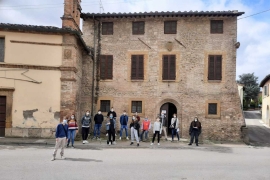The dossier expresses: "Analyzing the period May-September of 2019 and comparing it with the same period of 2020 it emerges that from one year to the next the incidence of the 'new poor' goes from 31% to 45%: almost one in two people that turns to Caritas does so for the first time. In particular, the weight of families with minors, women, young people, Italian families who are in the majority (52% compared to 47.9% last year) and people of working age increases; on the other hand, the high-level marginality decreases. What makes the difference, however, compared to the 2008 economic shock is the point from which we start: in Italy in the pre-pandemic era (2019) the number of absolute poor has more than doubled compared to 2007, on the eve of the collapse of Lehman Brothers."
Like all traumatic events, the pandemic has presented a higher toll to the most vulnerable. Looking at employment, the impact of the pandemic and the resulting economic repercussions has produced greater effects in precarious, intermittent or on-call workers; in terms of education, during the lockdown there were many families without useful equipment for distance learning, thus widening the gap of opportunities between their children and those of people who had the necessary devices; not to mention the "stay at home" leitmotiv, obviously experienced differently from those who own a home and those forced to live on the street, also found themselves at greater risk of contagion.
In parallel with the difficulties in Italy, solidarity has also grown, also thanks to the action of about 62 thousand volunteers, starting with the young people of the Universal Civil Service, who from north to south have spent themselves in favor of the most vulnerable with rescue or support methods, often innovative.
Special attention is given to the issue of work, and especially to the suffering experienced by many small shopkeepers and self-employed workers. On this front, the diocesan Caritas in as many as 136 dioceses have activated specific funds, useful for supporting the most urgent expenses (rents, mortgages, utilities, purchases for the restart).
In the words of Pope Francis, the Caritas report states: “Coming out of the crisis does not mean giving a brushstroke of paint [whitewash] to current situations… It means changing, and that everyone does real change, all the people who make up the people. All professions. And all together, in [and as a] community.”


